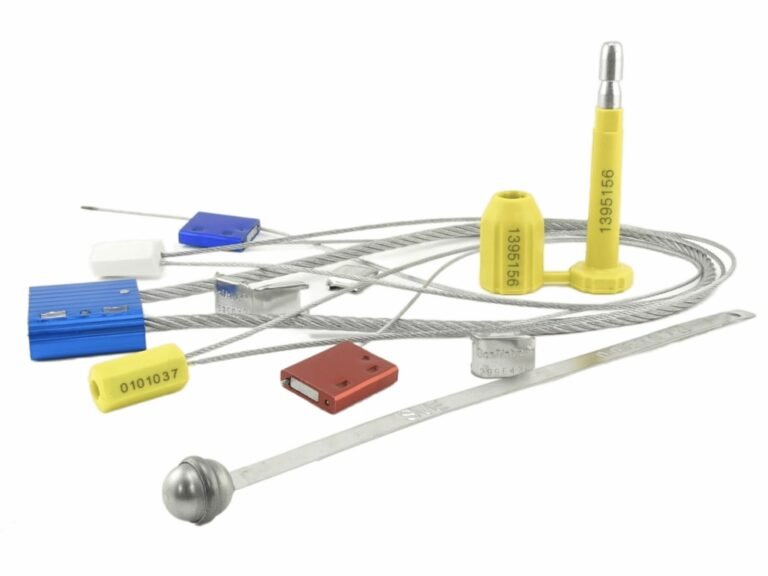Worried about cargo theft, disputes, and unreliable suppliers? A single weak link in your supply chain can cost you thousands and severely damage your business reputation.
This guide redefines security seals not as a cost, but as your most critical risk management tool. It's your key to providing an undisputed chain of custody, which protects you in commercial disputes by assigning clear liability and safeguarding your profits.
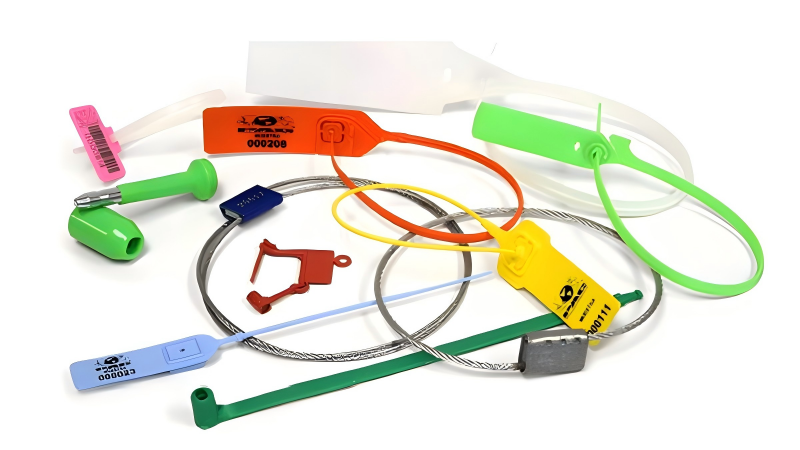
For years, I've watched importers and wholesalers struggle with supply chain vulnerabilities. They often treat security seals as a minor expense, only to face major losses when something goes wrong. The key is shifting your mindset. You're not just buying a piece of plastic or metal; you are investing in a "silent lawyer" that protects your assets and your business reputation across global trade routes. Let's break down how you can think and act like an expert in this field.
Why Are Security Seals Your First Line of Defense in Global Trade?
Are you treating security seals as just a lock? This common mistake exposes your business to huge financial risks and legal disputes when cargo issues arise.
A security seal's primary value is not just physical deterrence but providing an undisputed chain of custody. It is irrefutable proof in a commercial dispute, instantly showing where responsibility lies. This simple device acts as your silent legal advocate, saving you from potentially huge losses.
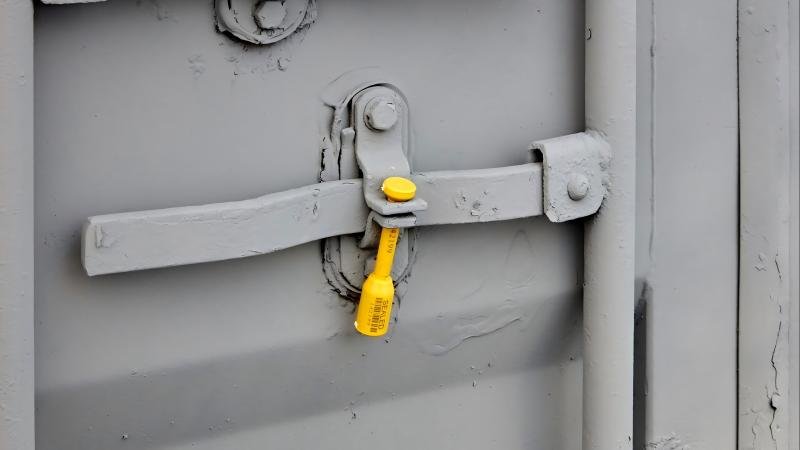
Let's dive deeper into this concept of "risk management." In my decade-plus in this industry, I’ve seen countless cases where a proper seal saved a company a fortune. Think about it: a container travels across oceans, handled by multiple parties. If a discrepancy is found at the destination, how do you prove you weren't at fault? Without a properly documented and intact seal, it's your word against theirs. A high-quality, compliant seal transforms this situation. It provides a clear, tamper-evident trail.
The security Seal as Your Evidence
| Scenario | Without a Proper Seal | With a Proper Seal |
|---|---|---|
| Cargo Shortage | You are likely held responsible. It's impossible to prove the loss didn't happen on your end. | The broken or different seal number proves tampering occurred during transit. Liability shifts to the carrier. |
| Contraband Added | You could face severe legal penalties and fines as the importer of record. | The intact seal record demonstrates the container was secure when it left your control, protecting you legally. |
| Damage Dispute | It's difficult to pinpoint when the damage occurred, leading to prolonged and costly disputes. | The seal's integrity record helps narrow down the timeframe and location of the incident. |
The security seal isn’t just a deterrent; it's your objective, non-negotiable evidence in a world of commercial uncertainty.
How Do You Choose the Right security Seal for Your Needs?
Are you using a one-size-fits-all approach for seals? Using the wrong seal is like gambling with your profit and reputation. It's not about saving money; it's a strategic failure.
Choosing the right seal means matching it to your cargo's value and the shipping route's risk level. Just as a doctor prescribes different medicine for different illnesses, you must select seals based on a strategic assessment of your specific supply chain needs.
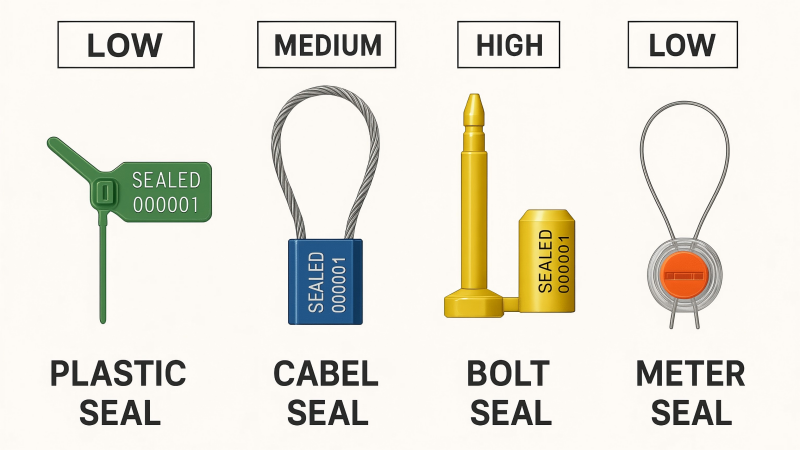
Thinking like a strategist, not just a purchaser, is critical here. It would be absurd to use the same low-cost plastic seal for a shipment of low-value consumer goods and a container of high-value electronics. The choice must be a calculated decision. I guide my clients to think through a simple matrix: cargo value versus route risk.
Matching Strategy: security Seal Type vs. Risk Level
1. Assess Your Cargo Value
First, categorize your shipments. Are they high-value (electronics, pharmaceuticals), medium-value (branded apparel, auto parts), or low-value (raw materials, generic goods)?
2. Evaluate Route Risk
Next, analyze the shipping lane. Is it a high-risk route known for theft or tampering? Or is it a secure, well-established route with trusted partners?
3. Apply the Matching Matrix
Use this table to guide your decision. This isn't a rigid rule, but a professional framework.
| Cargo Value / Route Risk | Low-Risk Route | Medium-Risk Route | High-Risk Route |
|---|---|---|---|
| High Value | High Security Seal (H) | High Security Seal (H) | High Security Seal (H) + GPS |
| Medium Value | Security Seal (S) | High Security Seal (H) | High Security Seal (H) |
| Low Value | Indicative Seal (I) | Indicative Seal (I) | Security Seal (S) |
- (I) Indicative Seals: Plastic seals, meter seals. Provide evidence of tampering.
- (S) Security Seals: Cable seals, stronger plastic seals. Provide a limited barrier.
- (H) High-Security Seals: Bolt seals, 3.5mm+ cable seals. Compliant with ISO 17712, they provide the highest barrier.
This strategic approach ensures you are protected adequately without overspending.
How Can You Ensure Your security Seals Meet ISO 17712 and C-TPAT Standards?
Do you trust the PDF certificate your supplier sends you? Relying solely on that document is a massive trap that many fall into, exposing them to non-compliant products.
To truly verify compliance, you must go beyond the certificate. Demand the full, multi-page test report from a third-party lab, confirm that lab is ISO 17025 accredited, and meticulously check that the product model in the report matches your purchase.
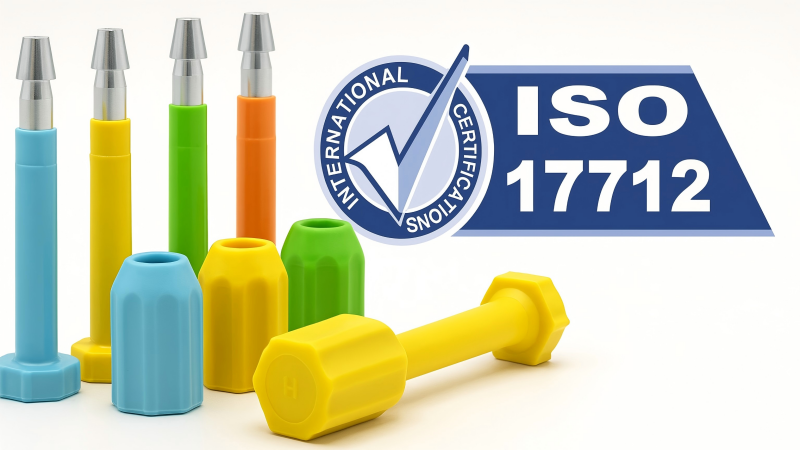
This is where you separate professional importers from amateurs. In my experience, this is the single most critical area for due diligence. A fake certificate is worthless if your container is stopped at customs. The burden of proof is on you. I've developed a three-step verification method that filters out over 90% of non-compliant suppliers. It's a trade secret I'm sharing with you.
The 3-Step Verification Method
Step 1: Demand the Full Test Report
Do not accept a one-page "Certificate of Compliance." Ask for the complete laboratory test report. A real report for ISO 17712 Clause 5 (mechanical strength) is often 10-20 pages long and details every test performed.
Step 2: Verify the Laboratory's Accreditation
The report is only valid if the lab is credible. The lab must be accredited under ISO/IEC 17025 for testing the specific clauses of ISO 17712. You can usually verify this on the lab's website or through a national accreditation body's public database.
Step 3: Match the Product Details
This is the final check. Carefully compare the product model number, name, and, most importantly, the photographs and technical drawings in the report to the actual seal you are purchasing. I've seen suppliers use a valid report for one product to sell a different, non-compliant one.
This process takes a few extra minutes but builds a wall of security around your procurement.
Beyond Security: How Can You Leverage Customization for Brand and Supply Chain Visibility?
Do you see customized seals as just an extra cost? This view misses a huge opportunity. A seal is not just security; it's a powerful tool for branding and data.
A customized seal with your logo, unique serial number, and a QR code transforms a simple cost item into a smart investment. When your client can scan a seal to get tracking info, you deliver a level of trust and professionalism that sets you apart.
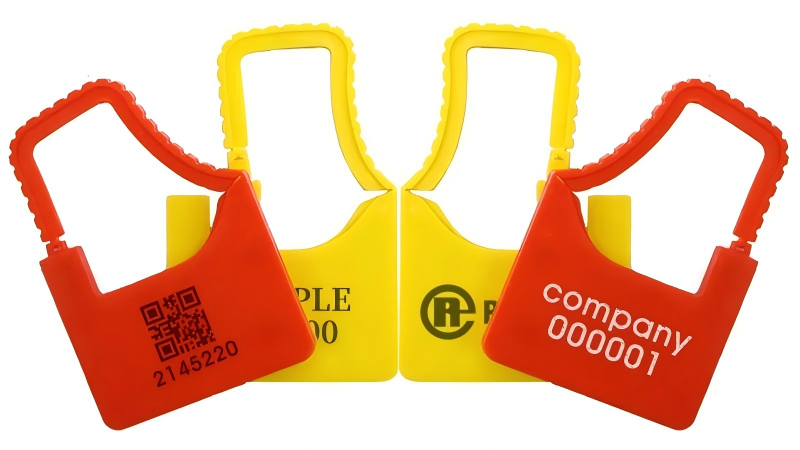
Let's shift our thinking from "cost" to "Return on Investment (ROI)." A generic seal says nothing about you. A custom seal, however, is a mobile billboard and a data node for your supply chain. I've helped clients implement this, and the feedback from their end-customers is always overwhelmingly positive. It conveys a message of quality control and technological sophistication.
Unlocking Value Through Customization
Here’s how to think about the ROI of a customized seal:
1. Enhanced Brand Recognition:
- What it is: Your logo and company colors on every seal.
- The Value: It reinforces your brand at every checkpoint. It's a constant, subtle reminder of your company's commitment to quality and security, looking far more professional than a generic seal.
2. Improved Operational Efficiency:
- What it is: Custom serial numbers and barcodes/QR codes.
- The Value: This eliminates manual data entry errors. Staff can scan the seal, instantly logging its number, time, and location. This speeds up processing and creates a reliable digital trail.
3. Superior Customer Experience:
- What it is: A QR code linked to a public tracking page or your website.
- The Value: Your customer can scan the seal on their arriving container and instantly see its journey or verify its authenticity. This transparency builds immense trust and differentiates you from competitors.
Customization is your opportunity to turn a mandatory security item into a competitive advantage.
What 5 Critical Questions Must You Ask a Security Seal Supplier?
Do you know what to ask a potential supplier beyond "What's your price?" Asking the right questions from the very first contact determines the quality of your future partnership.
To gain control, you must ask sharp, specific questions that probe their quality systems, communication protocols, and true compliance. These questions act like an x-ray, revealing the supplier's real capabilities and reliability before you commit.
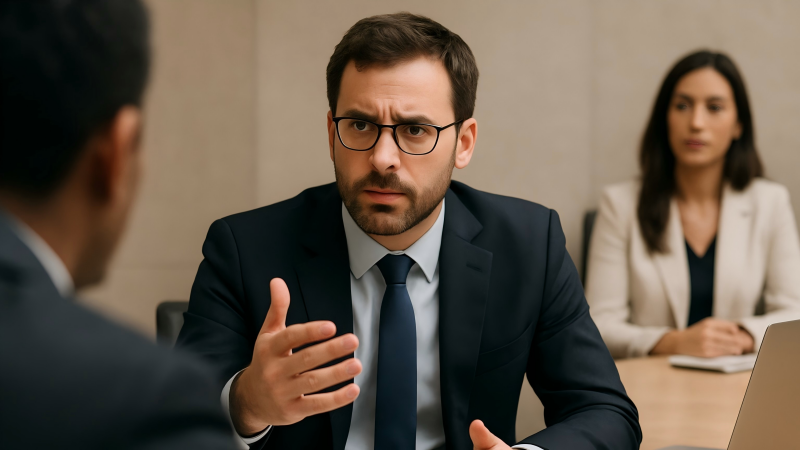
After years of dealing with supplier issues—from communication breakdowns to devastating delivery delays—I've compiled a list of questions that I now consider essential. These are my "litmus test" questions. A good supplier will have ready, confident answers. A weak supplier will hesitate or give vague responses. These five questions will empower you to take charge of the conversation.
The 5 "X-Ray" Questions
1. "Can you describe your quality control process? Specifically, what happens if a batch of materials or finished seals fails an internal inspection?"
- Why it matters: This probes their commitment to quality. A good answer will describe a clear process: quarantining the batch, root cause analysis, and corrective actions. A weak answer is "Don't worry, it never happens."
2. "If a production delay occurs, what is your communication protocol? Who is my direct contact, and what authority do they have to solve problems?"
- Why it matters: This addresses the pain point of poor communication. You want a single point of contact empowered to make decisions, not just pass messages.
3. "For the specific XX model high-security seal, can you provide the latest, full test report from an ISO 17025 accredited lab?"
- Why it matters: This is the practical application of our verification method. Their ability to provide this document immediately is a strong indicator of their legitimacy.
4. "What is your standard production lead time, and what is your on-time delivery rate over the last year?"
- Why it matters: This asks for data, not just promises. A professional factory tracks these metrics. Their confidence in answering is telling.
5. "Can you provide references from two clients in my region who have been buying from you for over three years?"
- Why it matters: This tests their long-term reliability and customer satisfaction. A supplier with a history of good service will have happy clients willing to serve as references.
Conclusion
Mastering security seal procurement is about shifting from tactical buying to strategic risk management. It means choosing the right seal, verifying compliance diligently, and asking tough questions.
Get Strategic Security Solutions from ProtegoSeal
To protect your business from costly disputes and liability, ProtegoSeal offers strategic security solutions. Our seals are engineered to provide an undisputed chain of custody, giving you the irrefutable proof needed to protect your profits in global trade. Contact me for a strategic consultation or to request a free sample.

